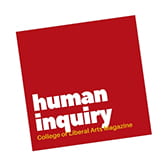
“The workplace is not sex neutral,” writes Dr. Patti Giuffre (Department of Sociology) and her colleague Courtney Caviness, who is Texas State MA Sociology alum, Dr. Giuffre’s former mentee, and currently a doctoral student from the University of California, Davis. “[I]t is a sexualized site because humans are sexualized beings.” In their chapter, “Sexuality, Employment, and Discrimination,” published in the Companion to Sexuality Studies, Giuffre and Caviness review the research on workplace policies and practices impacting LGBTQ communities. “Our chapter examines contemporary cross‐cultural research on sexualities in workplaces,” they write. “We also describe calls to challenge heteronormativity in workplaces and to queer work and organizations.”
The chapter shares many findings, cases, and stories that help explain the current state of sexuality, employment, and discrimination. For example, Giuffre and Caviness report how the United States has not taken the lead on policy improvements. “According to the International Lesbian, Gay, Bisexual, Trans, and Intersex Association (ILGA), employment protections in the United States have consistently lagged 72 other countries such as Australia, Botswana, Canada, Mexico, New Zealand, and Peru, that have implemented extensive legal protections for LGBTQ workers.”
The team found that disparity also persists in hiring and wages. “A study of a random sample of workers across the US found that LGB workers experience wage discrimination compared to heterosexual workers and that discrimination toward bisexual workers was even more pronounced.” Discrimination varied depending on the workplace context and culture. “In some work environments, homophobia and heteronormativity are overt, extreme, and even dangerous.”
The team also reviewed the literature on homonormative workspaces, where gay sexuality is celebrated. The review presents “queer workplaces” as an alternative to heteronormative and homonormative workplaces that might marginalize workers. “Queering the workplace would mean that binaries would be deconstructed and not used as a basis for inequality.”
In conclusion, the team calls for further research on overt and covert discrimination against LGBTQ workers. “Future research must move beyond the purview of overt discrimination to examine the explicit and implicit implications of workplace policies that are oft‐touted as gender and sexual orientation neutral.” There is still more work and research to be done and progress to be made.
